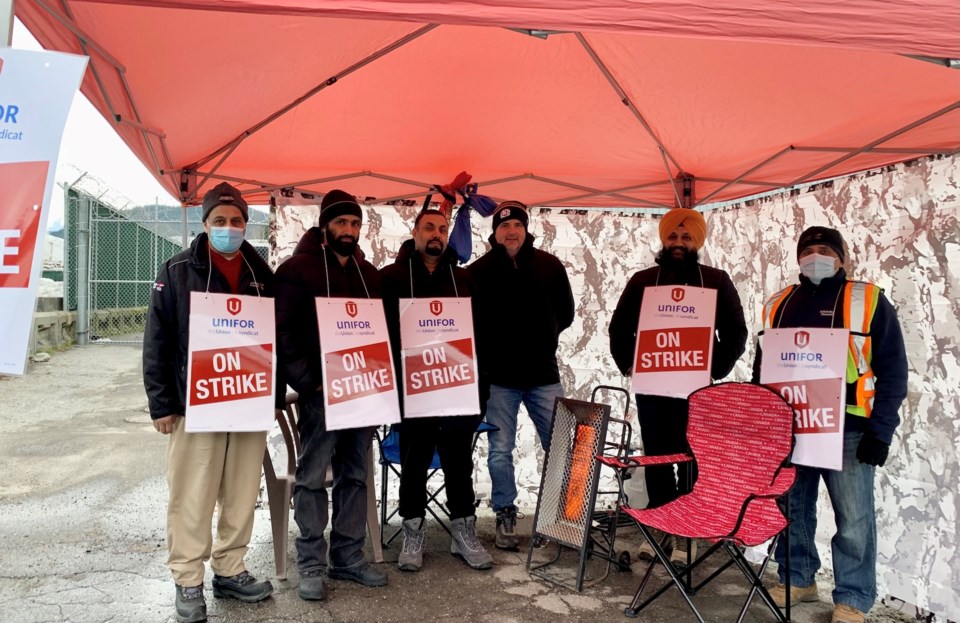If the transit labour dispute doesn’t end this week, Â鶹Éçąú˛úresidents — whether impacted by the strike or not — need to join forces to demand action.
The strike is approaching the longest transit strike in B.C. history — the longest being the 2001 Metro Vancouver transit strike that lasted 123 days.
More than 80 Sea to Sky members of Unifor Local 114 went on strike on Jan. 29.
The 2001 strike ended with the — provincial legislation which forced the workers back on the job and imposed on the employer most of what the mediator found fair.
It may be time the province intervenes again, though unless the public speaks up, the labour-friendly NDP government is likely loathe to do so as it is a heavy hammer to wield.
To be clear, this isn’t pro or anti-union or employer.
This is about what is best for Squamish.
While the lack of transit has been more of a where more workers seem to rely on it, there hasn’t been the same at least public and vocal concern in Squamish.
Of course, a few people have advocated for the drivers or expressed concern, but overall, it has been pretty quiet.
It seems many of us here have other ways of getting around.
But this silence is a bit counter-intuitive. Aren’t we the town with folks who march in the streets over climate change?
Aren’t we the ones pushing for plastic bag and straw bans?
And protesting in the streets year after year over the yet-to-be-built LNG plant?
We proudly haul around our reusable cups and shopping bags, and pay a fortune for our eco-friendly clothing, but when our public transit system grinds to a halt, we get in our cars and shrug?
What is up with that?
Last we checked, there isn’t much debate that an operating public transit system is good for the environment.
And what of all the keyboard warriors lamenting the lack of parking in Squamish? They suddenly have little to say about the lack of a bus system to free up at least some of those spots?
Like the strike in 2001, this stoppage is undoing years of efforts to get more folks onto transit and out of vehicles.
When the 2001 Vancouver transit strike ended, the company offered a few days of free transit, which cost it millions of dollars at the time, to try and get those who had found other means of travel back.
Hard to imagine that even that will do much to increase ridership in Squamish.
Those who desperately need it will climb back on board, and those who don’t will continue as always.
And what of the fight for regional transit? Hard for our local leaders to argue it is something their citizens want them to fight for when there’s been nary a peep out of locals over this long-running strike.
The strike makes glaringly clear the have and have-not divide in Squamish.
Those who this strike impacts are hurt significantly.
The Â鶹Éçąú˛ú has heard from students who struggle to get to their after-school activities or jobs.
The privileged ask their parents to drive them, and the rest scramble with a patchwork of imperfect solutions from bumming rides, walking and cycling great distances or not going at all.
We have heard from adults who can’t get to their jobs other than by begging for a ride or taking a taxi.
We have heard of seniors going on fewer outings and single parents taking long walks to Walmart for affordable supplies or spending their few resources on more expensive options closer to home.
Others have told us they hesitate to interview for new jobs because they don’t know if they will be able to get to them consistently if hired.
Not to mention employers already short-staffed having to manage employees who don’t always have a way to get to work.
The bottom line: it is time to find a resolution to this strike, but locals may have to speak up to get it done.




